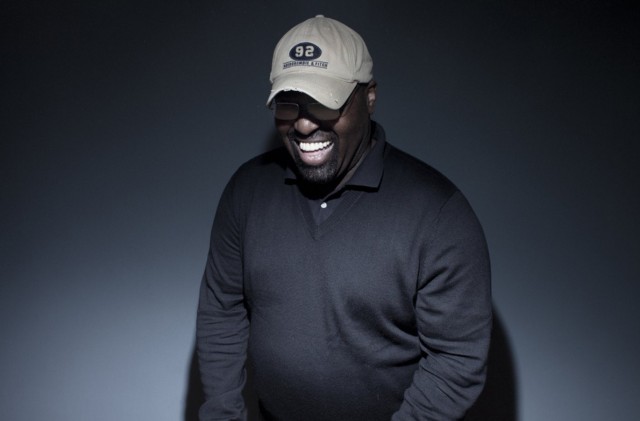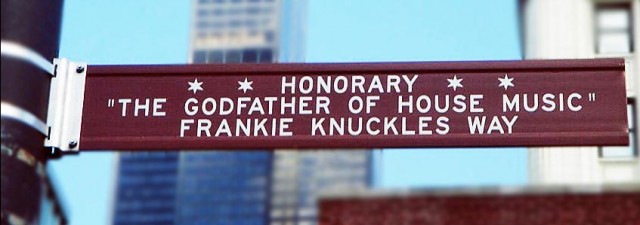The passing last week of Frankie Knuckles has led to an outpouring of remembrance for this dance music pioneer, a signal of just how deeply and broadly his work was felt. To give us greater insight, CDM turns in our obituary to Denise Dalphond, the enthnomusicologist who has devoted much of her work to researching the roots of electronic dance music in America. (Her PhD dissertation, “Detroit Players: Wax, Tracks, and Soul in Electronic Music,” is due soon.) She gives us her thoughts on Knuckles’ significance as well as lining up some of the best places to watch and hear his legacy.
Frankie Knuckles is one of a select few legends who made electronic music culture and dance music culture possible. There are other important figures, of course, but today, the honor and focus is on Frankie Knuckles. His legacy is far-reaching and thankfully well known. He spent his early musical days with Larry Levan and Robert Williams, bought his first drum machine from Derrick May and used it in his DJ mixes, and worked closely with Chip E, Robert Owens, and Jamie Principle in forming Chicago’s influential style of house music. He was the resident DJ at the Warehouse from 1977-1982, and at his own club, the Power Plant, from 1982-1985. In 2004, then Illinois state senator, Barak Obama declared the location of the Warehouse on South Jefferson Street Frankie Knuckles Way.
On the origins of house music, Knuckles said in an interview in 2010, “I am just one of a number of DJs that pioneered the sound. However, it all began at my club, US Studios, which was later named the Warehouse. It inspired all the other guys that were climbing on the bandwagon back in the day.” Any history addressing the etymological origins of the word “house” as a form of music must include Frankie Knuckles’ sonic contributions from the Warehouse club. Records for sale at Chicago record shop, Importes, Etc. in the early to mid 1980s came to be labeled “heard at the Warehouse.”
His interview for the film, Maestro, was significant in 2003 with the film’s release, but it holds even more importance today after his passing. We, as music fans, musicians, writers, artists, cultural consumers, are all thankful to have that record of his words, ideas, and stories. Referring to New York clubs, The Loft and Paradise Garage, Knuckles explains in the film, “Loft music, Garage music, are all one and the same. The Loft set it all up. The Garage made it real. And probably the Warehouse solidified all that in this culture, made it commercial even.”
Notable moments featuring Frankie Knuckles in Maestro: 16:40; 57:35; 1:06:33; 1:10:57. The entire film is worth watching, but his segments are particularly poignant and moving.
His reach was great around the United States and the world. I can say with pride that his influence in Detroit was profound. Producer and owner of Todchai Records in Detroit, Kevin Reynolds, expressed this heartfelt sentiment upon learning of Knuckles’ passing:
“Frankie Knuckles passing so young is really putting things in perspective. I just said this to a friend but it seems fit to say it to everyone. It seems grandiose to say without him we possibly would have never met. But its true, I wouldn’t know 70 percent of the people I know if it wasn’t for this music. Think about how your connections in life are through music. House music opened doors to many, many things in my life that are solid foundations of real relationships. To me that is power beyond anything, the gift to bring people together. Respect.”
In Detroit, producers and DJs herald the Electrifying Mojo and Jeff Mills, Juan Atkins and Derrick May, as seminal influences on their musical lives. They also describe Frankie Knuckles as being significant on their own creativity and musical knowledge, but also on electronic music in Detroit as a whole. This remix is one of my favorites:
Knuckles, like many Chicago house and Detroit techno musicians and fans, held notable views on drug use. Its role in his experience of music was tangential. The Warehouse, like the Music Institute in Detroit a decade later, was a juice bar admitting club goers aged 19 and up, and could stay open well past the hours of a joint with a liquor license. Drugs were certainly present at both clubs, but their role was much different than the primary importance placed on drug use in dance music culture starting in the 1990s and continuing today. In Maestro, he lamented the decline in Larry Levan’s health and artistry as his drug use increased. This sentiment is important in the face of the sometimes stunning prevalence of drug use in dance music culture. As with anything related to health, moderation is key and Knuckles personified that idea.
You may want to hear some mixes. I could compile a list, but that would require me to pretend that my list would be more useful or extensive than a list already arranged by Jacob Arnold of Gridface. Prepare yourselves, the list is long and glorious, and the music is epic.
See also Denise’s excellent site:

